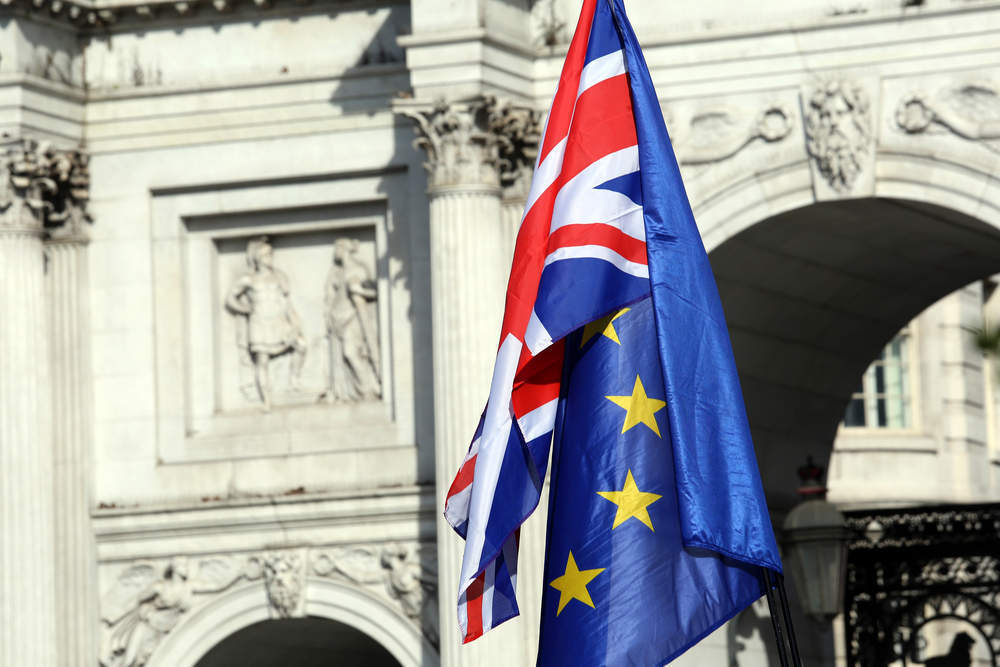
In June 2016 the UK voted to leave the European Union, but almost a year on, how has the political environment changed?
The shock Brexit vote gave rise to new political identities, according to a 62-page report published today by the think tank UK in a Changing Europe.
In other words, the Leave-Remain divide engendered new political allegiances depending on how an individual voted.
Written by 38 academics, the report looks at the implications of the Brexit vote on politics, economics, public opinion, the UK’s relationship with the EU, as well as the impact of the Leave victory on regions across the UK.
Brexit Blairism
A year on, nearly three-quarters of people across the UK still affiliate themselves with either the Leave or the Remain side — a similar proportion to those who identify with political parties.
How well do you really know your competitors?
Access the most comprehensive Company Profiles on the market, powered by GlobalData. Save hours of research. Gain competitive edge.

Thank you!
Your download email will arrive shortly
Not ready to buy yet? Download a free sample
We are confident about the unique quality of our Company Profiles. However, we want you to make the most beneficial decision for your business, so we offer a free sample that you can download by submitting the below form
By GlobalDataLeave and Remain identities found a way of expressing themselves in relation to Britain’s traditional two-party system.
The report found that during this month’s snap general election, a new type of politics sprung-up. It’s been called Brexit Blairism.
Labour leader Jeremy Corbyn — while campaigned for Remain — took the middle ground on Brexit, much like former UK prime minister Tony Blair did on economic issues in 1997.
The UK in a Changing Europe said:
Brexit Blairism helped blunt the Conservative’s appeal in Leave areas, while allowing Labour to promote a softer alternative to hard Brexit in Remain areas.
Professor Anand Menon, director of the UK in a Changing Europe thinks the Brexit vote led to some fundamental changes in the UK’s political landscape.
Profound and fundamental political changes have occurred since the referendum and it remains to be seen how durable they prove to be. It is hard, if not impossible, following the snap election to know how the Brexit negotiations will go. The attitude our fundamentally divided, between and within parties, parliament will take is crucial and impossible to predict.
Here are the report’s key findings.
Economy
Under former UK prime minister David Cameron, economic policy was focused on fiscal restraint and deregulation.
However, in light of the Brexit vote, prime minister Theresa May has made domestic economic policy the least liberal in over four decades, according to the report.
“The UK is far more exposed to Brexit trade related risks than any other EU state except Ireland,” a UK in a Changing Europe spokesman said in a statement issued to Verdict.
“Germany and the Netherlands will be less affected by Brexit than the UK and many other member states will feel almost no effect. Authors conclude that the economic strength of the UK’s negotiating position is far weaker than the British public understands,” he added.
Implications for the UK’s regions and nations
One year on from Brexit, there is little to indicate that the UK Government has engaged seriously with the devolved administrations about what they want from the country’s future relationship with Brussels.
“This will be particularly striking when EU powers — or ‘competences’ — start to come back to the UK,” a UK in a changing Europe spokesman said in a statement issued to Verdict.
“The UK Government has indicated that it intends to reaffirm Westminster’s supremacy but after nearly 20 years of devolution, Scotland, Wales and Northern Ireland argue that powers that return from Brussels over devolved matters like agriculture must go to them, along with appropriate means to finance them,” he added.
The report makes clear that a constitutional clash over such powers may provoke further moves towards Scottish independence.
Highly sensitive issues have been thrown-up in Northern Ireland following the referendum.
The report warns that if Norther Ireland is not handled with caution, then there is potential for “significant disquiet”, both from staunch nationalists opposed to a physical north-south border, as well as hard-line unionists who want to retain free movement with the rest of the UK.
UK regions that voted Leave tend to be those most dependent on EU markets for their prosperity and are most likely to be exposed to Brexit, the report found.
Therefore, the final UK-EU deal could benefit some areas within the UK more than others, potentially undermining efforts towards economic rebalancing.
Environment
One year on, there is a growing realisation that Brexit will have “profound implications” on the UK’s environment, including agriculture, fisheries, climate and energy, the report said.
A third of EU environment policy cannot be copied into UK law (through the Great Repeal Bill) as it makes specific reference to EU institutions, according to former UK environment secretary Andrea Leadsom.
It is unclear whether the UK will develop alternative governance arrangements to replace exisiting EU environmental legislation.
British nationals in the EU and EU nationals in the UK
The uncertainty and lack of clarity about what Brexit might mean for British nationals in the EU, authors note, “is causing significant unease,” the report said.
The report sets out some of the key questions relating to EU nationals in the UK and British nationals in the EU during the BRexit negotiations.
When will free movement end? Should EU citizens continue to enjoy preferential status in the new system? Will the new system have preferential or special treatment for specific sectors (or indeed nations or regions)? Will policy be set primarily with respect to the economic needs of the UK or by reference to an arbitrary and largely discredited numerical target?
Formal Brexit talks between the UK and the EU started on Monday in Brussels.





